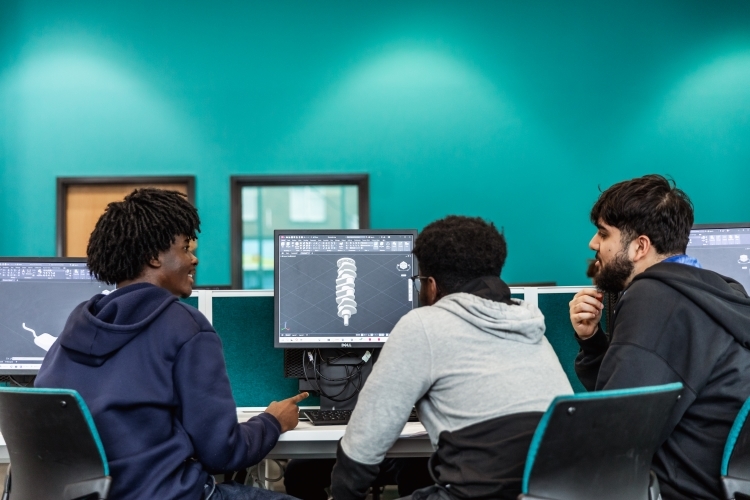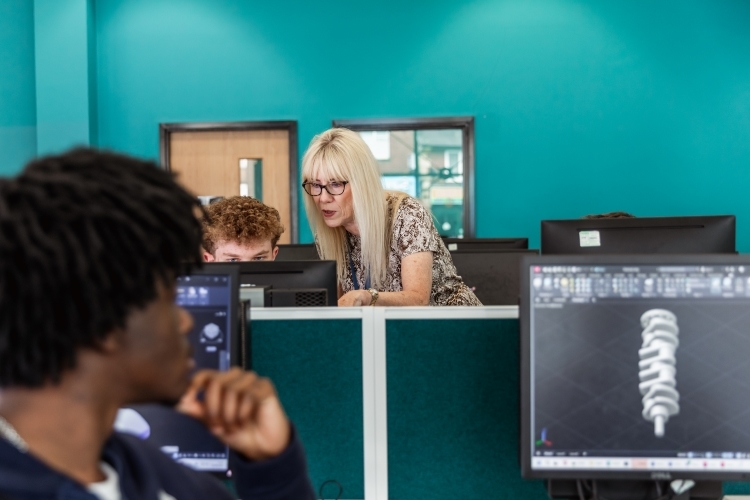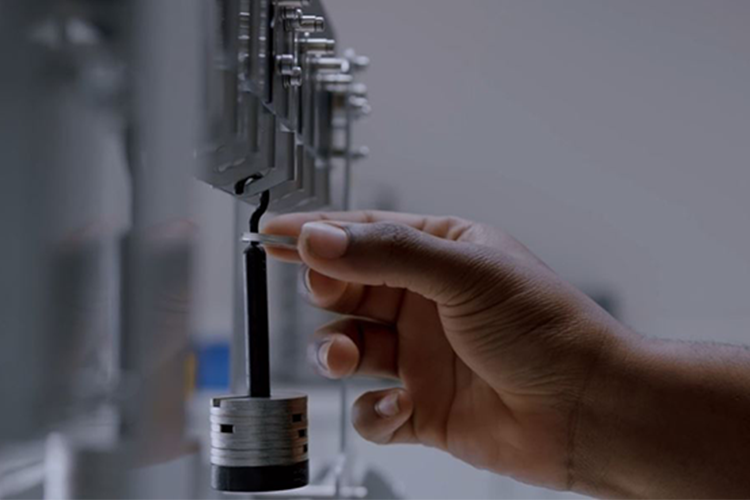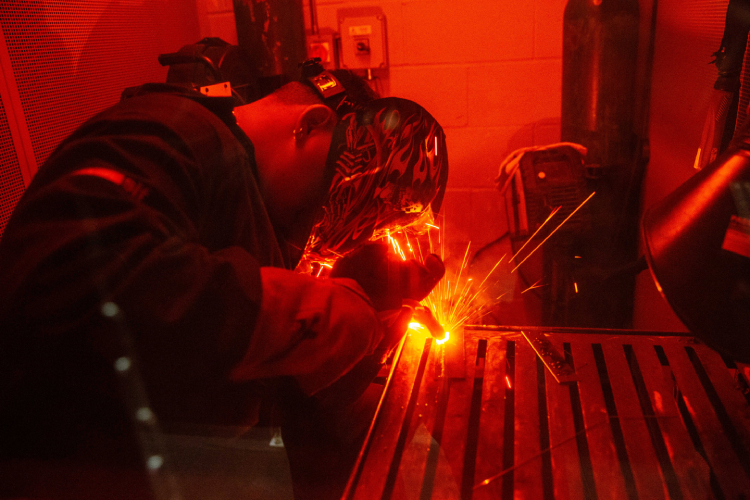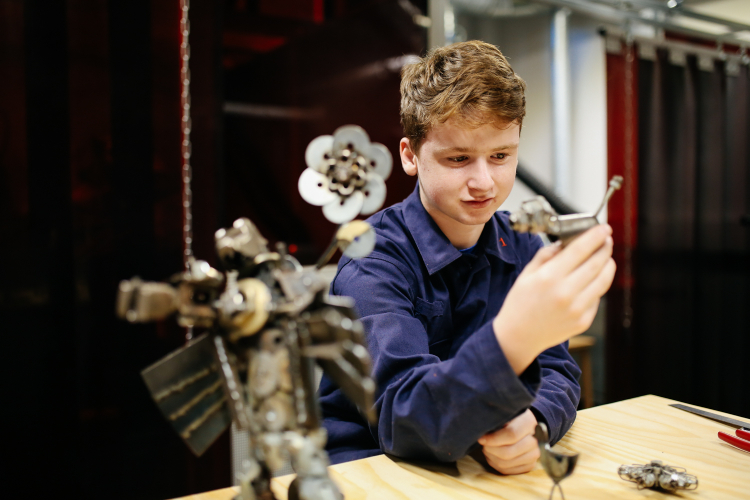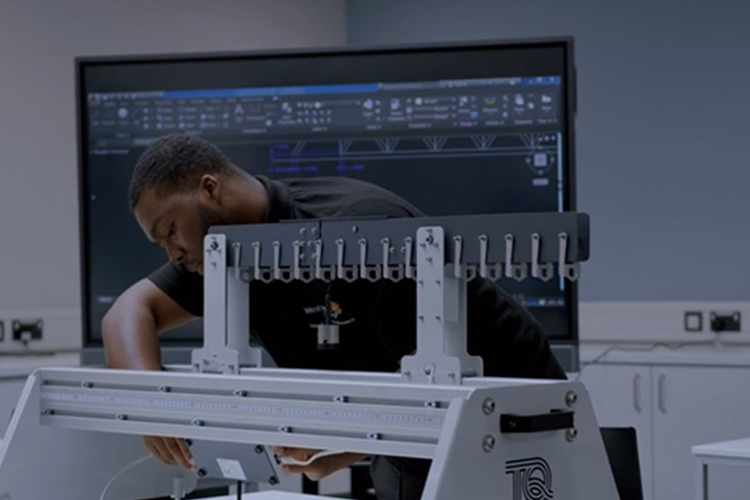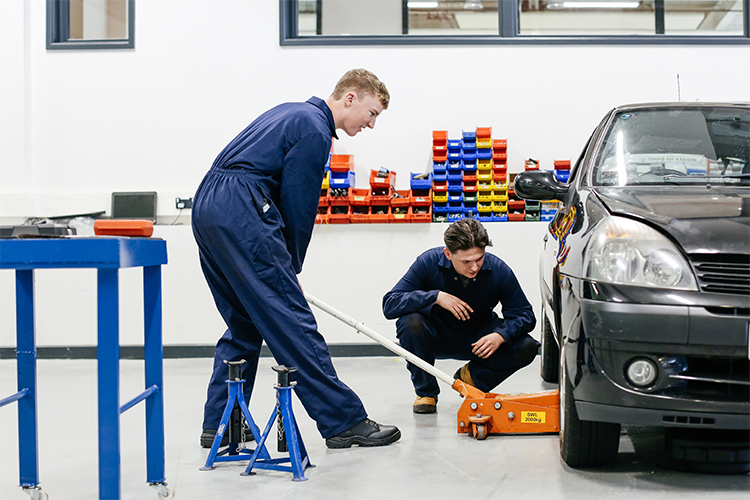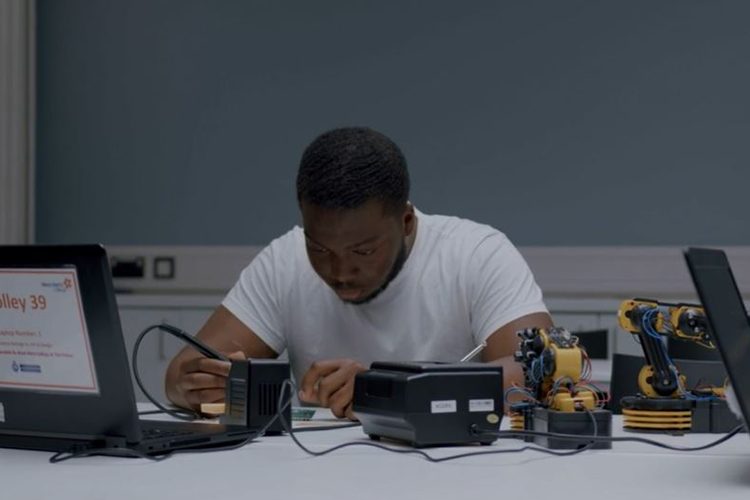This course is perfect for the next generation of engineers with sky-high ambitions. You will cover key skills and knowledge around the general principles and concepts in aeronautical engineering including design, maintenance and project management.
-
Entry Criteria
4 GCSEs (9-4) including English Language, Maths and Science, or a relevant Level 2 and Maths
-
What will I study?
-
Engineering Principles: Discover the foundational concepts that underpin all branches of engineering, from mechanics and materials to systems thinking and sustainability.
-
Aircraft Flight Principles and Practice: Explore the science of flight, including aerodynamics, stability, and real-world aviation applications.
-
Microcontroller Systems for Engineers: Learn about the design, programming, and integration of microcontroller-based systems that power everything from consumer electronics to aerospace technologies.
-
Further Engineering Maths: Build on core mathematical skills with advanced techniques tailored for engineering problem-solving.
-
Computer Aided Design: Master the tools and techniques of 2D and 3D CAD software to create precise engineering drawings and digital prototypes used in modern design workflows.
-
Electronic Devices and Circuits: Delve into the operation and design of electronic components and circuits, from diodes and transistors to amplifiers and digital logic systems.
-
Mechanical Behaviour of Non-Metallic Materials: Investigate how polymers, ceramics, and composites respond to mechanical forces, and how their properties influence engineering design and performance.
-
Aircraft Gas Turbine Engines: Study the inner workings of jet engines, including thermodynamics, component design, and performance analysis of turbines used in modern aircraft.
- Aircraft Propulsion Systems: Examine the full range of propulsion technologies, from traditional jet engines to emerging hybrid and electric systems shaping the future of aviation.
-
-
Future Prospects
On successful completion of the 2 years, you can progress onto an Apprenticeship, Higher education or employment where specific training will allow you to specialise in your desired field. Careers include Aircraft Pilots and Flight Engineers, Mechanical engineers, Design and development engineers, Electrical engineer and Engineering technician.
